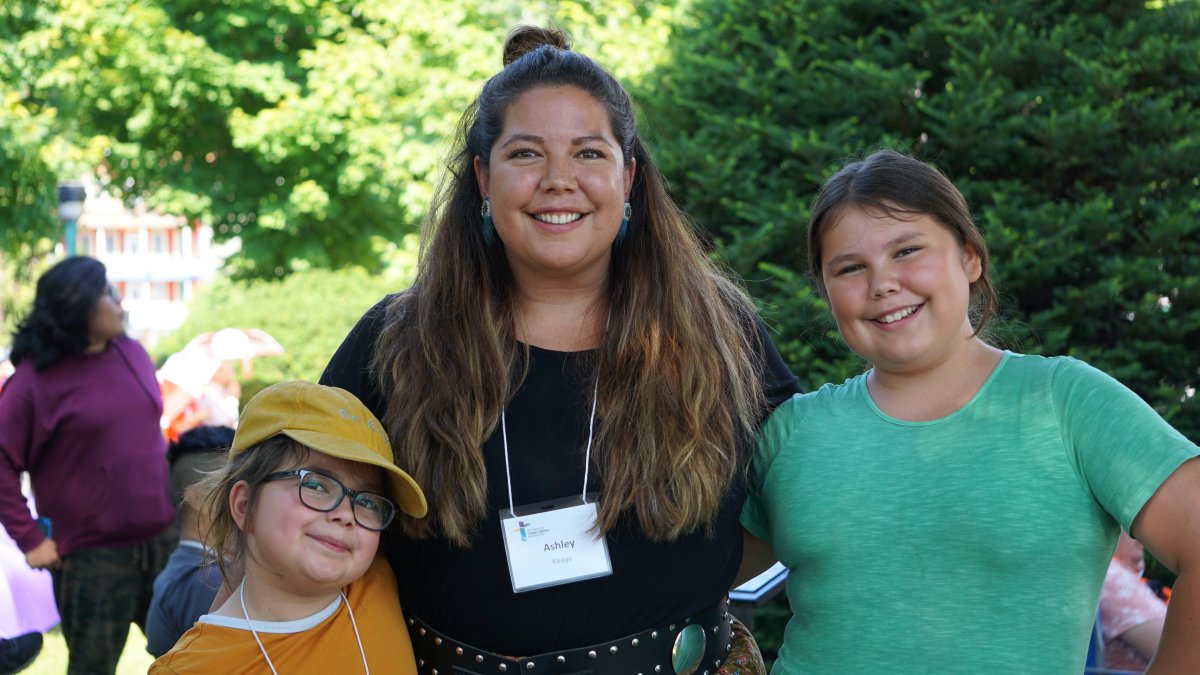Pope Francis concluded his historic “penitential pilgrimage” of Canada last week, focused on paving a new path for Indigenous Peoples and the Catholic Church.

His visit spanned Alberta, Quebec and Nunavut, including stops at a former residential school, many churches and some sacred sites for First Nations, Métis and Inuit people.
Chiefs, residential school survivors, elders, community leaders and youth attended from across the country, with mixed reactions to the Pope’s words of contrition. He issued his second, third and fourth apologies for residential schools during the trip, his first having been made at the Vatican last spring.
Many are still processing the visit and its implications for their own healing journeys, while calling for the Church to take concrete, reconciliation-based action in the months to come.
Global News asked Indigenous witnesses to the papal tour, and their allies, what they want non-Indigenous people in Canada to take away from Pope Francis’ penitence.
Ashley Keays in Sainte-Anne-de-Beaupré, Que.
Intergenerational survivor from Biigtigong Nishnaabeg in Ontario
“My hope and my prayer is that they would pause and be curious, to listen. There’s a lot of information and a lot of great resources — the Truth and Reconciliation Commission Calls to Action, the United Nations Declaration on the Rights of Indigenous Peoples. I would ask that they maintain that curiosity and learn — learn how to be a good human.”
Gary Têtu in Edmonton
Métis man who attended St. Mary’s Indian Residential School in Mission, B.C.
“I think Canadians want to help, but it’s also very uncomfortable for them and it’s easy to put that stuff over there and think about what’s coming this weekend or your own struggles in life …
“Empathy, not sympathy. There’s a big difference. Empathy — understanding, support and growth, hopefully.”

Elise Landriault Dupont in Quebec City
Ally to non-profit organization Puamun Meshkenu
“I think we need to hear and listen to the First Nations and be here in a very humble posture so we can understand more the past and recognize the healing process that has to be done in Canada … There’s a lot of violence towards First Nations women and a lot of work that needs to be done for all First Nations to have the power and security that they need.
“I’ll continue to learn where are the communities in Quebec, their names, the residential schools … be there when they need white people to be there in support.”
Lise Coocoo-Dubé in Quebec City
Sister to residential school survivors, from Atikamekw de Manawan
“I hope this will really touch Canadians and Quebecers, Quebecers especially — because I live in Quebec and we have difficulty making ourselves heard here. When we want to recognize systemic racism, our premier still refuses to accept that word.
“I know that Quebecers are fed up of hearing it. I know they’re tired of hearing it. But we will never retreat. If they don’t want to listen to us, we will keep talking about it … That’s what I want for my people.”
Sherry Mitchell in Edmonton
Métis intergenerational survivor from Edmonton
“Peace, hope and complete gratitude that it happened, being thankful and keeping the conversation open forever. A lot of people don’t even speak of it because they were either afraid or, you know, a lot of people wouldn’t believe them or it was their pain or trigger …
“Just openness and wholehearted bliss … Just take away the heart, and see that there’s something there, and that this is a really special time and it will be forever now.”
Everett Tom in Kamloops, B.C.
Residential school survivor from St’át’imc territory in B.C.
“To learn from this and just make sure it doesn’t happen again, and (that) I don’t blame them. I don’t blame the people of today. But just to learn from it and educate.”
The Indian Residential Schools Crisis Line (1-800-721-0066) is available 24 hours a day for anyone experiencing pain or distress as a result of their residential school experience.
The Hope for Wellness Help Line offers culturally competent counselling and crisis intervention to all Indigenous Peoples experiencing trauma, distress, strong emotions and painful memories. The line can be reached anytime toll-free at 1-855-242-3310.






Comments